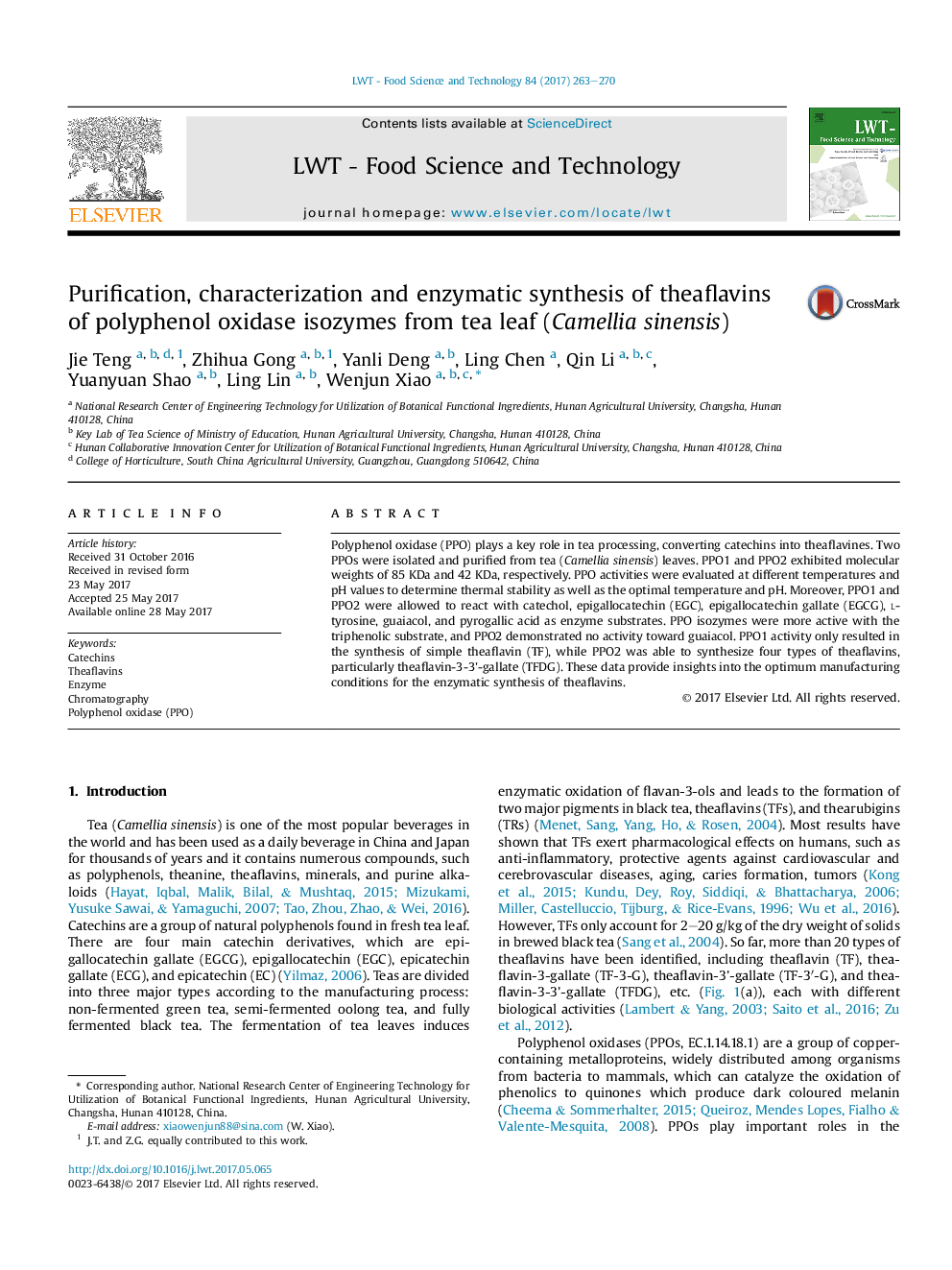| Article ID | Journal | Published Year | Pages | File Type |
|---|---|---|---|---|
| 5768940 | LWT - Food Science and Technology | 2017 | 8 Pages |
â¢Two polyphenol oxidases were purified from tea (Camellia sinensis) leaves.â¢PPO1 and PPO2 exhibited different optimal temperatures and pH values.â¢PPO1 reacted with catechins in vitro to produce simple theaflavin only.â¢PPO2 was able to synthesize four theaflavin derivatives from catechins.
Polyphenol oxidase (PPO) plays a key role in tea processing, converting catechins into theaflavines. Two PPOs were isolated and purified from tea (Camellia sinensis) leaves. PPO1 and PPO2 exhibited molecular weights of 85Â KDa and 42Â KDa, respectively. PPO activities were evaluated at different temperatures and pH values to determine thermal stability as well as the optimal temperature and pH. Moreover, PPO1 and PPO2 were allowed to react with catechol, epigallocatechin (EGC), epigallocatechin gallate (EGCG), l-tyrosine, guaiacol, and pyrogallic acid as enzyme substrates. PPO isozymes were more active with the triphenolic substrate, and PPO2 demonstrated no activity toward guaiacol. PPO1 activity only resulted in the synthesis of simple theaflavin (TF), while PPO2 was able to synthesize four types of theaflavins, particularly theaflavin-3-3'-gallate (TFDG). These data provide insights into the optimum manufacturing conditions for the enzymatic synthesis of theaflavins.
